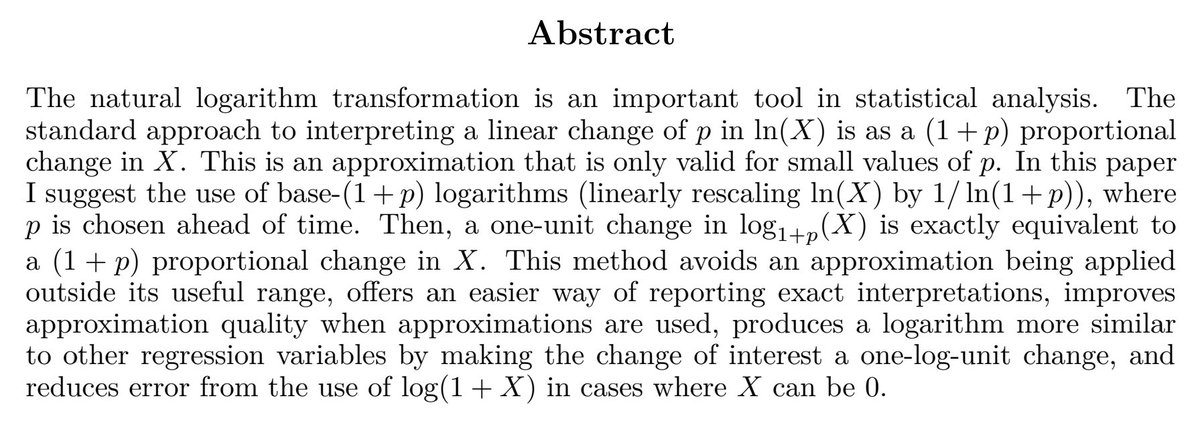How to get URL link on X (Twitter) App


 "A p increase in ln(X) is a p*100% increase in X" is an approximation, not a literally true. And it has problems:
"A p increase in ln(X) is a p*100% increase in X" is an approximation, not a literally true. And it has problems:

https://twitter.com/nickchk/status/1282722686158778368?s=19Assuming the price were reasonable (or free), would you do any of: read the completed book, recommend someone else read it, or assign this book in a classroom?
